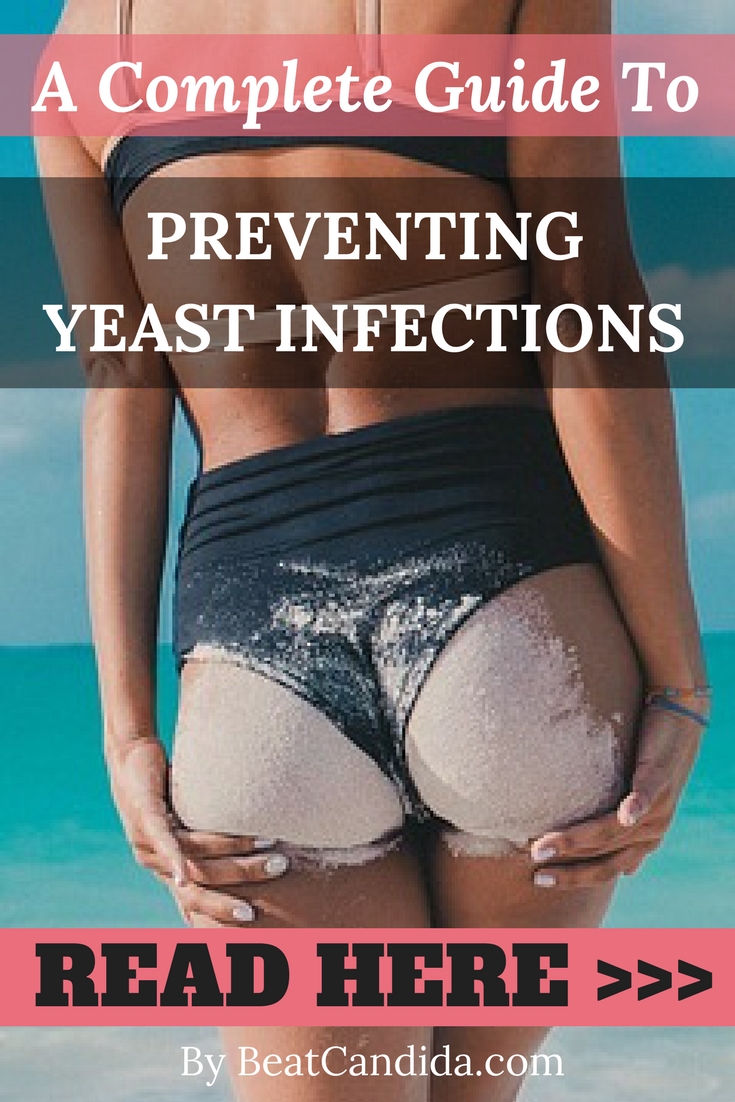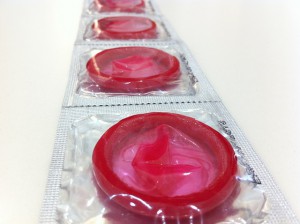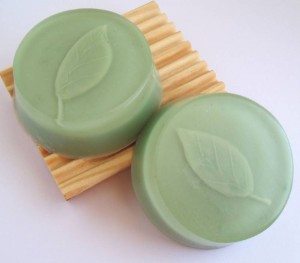How to prevent a vaginal yeast infection?
How to prevent a vaginal yeast infection?
You may be wondering why you keep getting vaginal yeast infections and what you can do to prevent them from happening again and again. I’ve come up with a list of possible causes of vaginal yeast infections and things you can do to prevent them. It’ll help you understand how your body responds to different factors and try to eliminate them to stay healthy.
- Avoid traditional oral contraceptives which boost estrogen levels in your body. Heightened estrogen levels double the risk of a vaginal yeast infection. If you’re not comfortable using condoms or diaphragms, opt for progestin-only pills, such as Norethindrone. You can also consider getting a progestin-only implant, it’ll last you 3 years.

- Avoid taking antibiotics whenever possible. Apart from killing the bacteria causing infection in your body, antibiotics also kill friendly bacteria. They help maintain healthy levels of Candida in your body. If there’s not enough friendly bacteria, Candida starts to multiply causing a yeast infection.
- Make sure you get enough sleep. Lack of sleep makes your body release more cortisol. Heightened levels of cortisol in your blood decrease your immunity, so you become more susceptible to all sorts of infections and it’s much harder to prevent yeast infections.

- If you’re trying to prevent vaginal yeast infections (or trying to cure one) sleep naked. This way you will let your vagina breathe and reduce humidity to the minimum. A humid vaginal area is a perfect environment for Candida.
- If you suffer from recurrent yeast infections, it’s best to use one boric acid suppository a week for up to 6 months after you recover from a yeast infection. It’s an excellent natural way to keep Candida at bay and they’ll also help you get rid of a yeast infection fast and naturally.
- Try to reduce your alcohol intake. Alcohol can upset the bacterial balance in your body allowing Candida to spread and cause an infection.
- Cut down on caffeine. It’s not only found in coffee but also in chocolate, ice cream, and energy drinks. Caffeine increases the levels of cortisol in your blood. It lowers your immunity and makes it easier for the yeast to multiply and cause a yeast infection.

- Having sex more than 7 times a week may lead to micro-injuries in your vaginal tissue. These tiny wounds are a perfect place for yeast to establish itself and cause infection. Any type of injury of the vulva or vaginal tissue provides an opportunity for Candida to start multiplying, producing unpleasant symptoms.
- Make sure that the lubricants and condoms you use, don’t contain a spermicide called nonoxynol-9. This chemical has been shown to trigger yeast infections and has other potentially harmful side effects. Durex stopped using nonoxynol-9 in their products in 2004, but other companies are still using it, so check the ingredients before buying.

- Immune-depressing diseases such as diabetes and HIV will make you more susceptible to all sorts of infections, vaginal yeast infections included. Try to follow a probiotic-rich diet and use probiotic supplements and probiotic suppositories to keep your vaginal flora balanced. You can also use probiotic tampons during your period to boost friendly bacteria levels in your vagina.
- Try not to wear tight, synthetic underwear, trousers, leggings, and tights. They don’t let the air circulate freely around the vagina creating a warm humid environment, perfect conditions for Candida to multiply and grow. Wear 100% cotton or silk underwear and choose dresses and skirts or loose trousers over leggings and tight jeans.
- Hormonal imbalance near your period or during pregnancy can trigger vaginal yeast infections. To prevent them, make sure you follow a probiotic-rich diet and use probiotic suppositories and probiotic tampons to maintain healthy vaginal flora.
- Don’t use scented soaps, bubble baths and scented feminine hygiene products. They can change the pH of your vagina creating favorable conditions for Candida growth. Choose antifungal washes and 100% natural feminine washes instead. Also, using scented detergents and dryer sheets, as well as perfumed toilet paper can irritate the skin around your vagina. It may become more prone to infection, so go for scent-free products whenever possible. Read More: Can you get a yeast infection from laundry detergent?
- Whenever possible, avoid steroid medications. There are numerous studies showing that steroid medications trigger vaginal yeast infections. If you have to take steroids, ask your doctor to prescribe you oral antifungal medication that you could take once a week as a preventative measure.
- If you suffer from impaired glucose tolerance, try to cut down on sugar. Increased glucose levels in your blood are an excellent source of food for Candida. If you’re suffering from recurrent vaginal yeast infections, you should get tested for glucose tolerance to make sure you get appropriate treatment to keep your blood sugar levels balanced. Read my post about how sugar intake affects Candida growth for more information.
- Avoid situations that lead to chronic stress and learn techniques to deal with stress. Chronic stress makes your body release cortisol which will impair your immune system making it unable to fight off yeast infections and sometimes leading to recurrent yeast infections.
- Avoid swimming pools that use harsh chemicals to sanitize water. They can change the pH in your vagina and trigger a yeast infection. Try to find a swimming pool in your area which uses one of the novel techniques to keep the water clean, such as ozone or UV-sanitized pools. Also, make sure you take off your wet swimming suit as soon as possible, after swimming.
- Similarly, if you tend to sweat a lot, make sure you carry spare panties with you and get changed whenever you feel that your vaginal area is becoming humid. The same goes for those of you who exercise. Make sure that you change your underwear after you hit the gym. The humidity is a perfect breeding ground for Candida.
- Don’t use vaginal douches. They will further upset your vaginal flora and make the recovery more difficult, as there’ll be not enough friendly bacteria to reestablish a healthy bacterial balance in your vagina. On top of that, a recent study shows that frequent vaginal douching will make you more likely to develop other types of Candida (non-albicans) which are resistant to the common antifungal medication.
Conclusion
As you can see, there are many things you can do to prevent a vaginal yeast infection.
It’s difficult to avoid all these things in your day to day life. But being aware of what can trigger a vaginal yeast infection will help you become more aware of how your body responds to different factors and try to eliminate the ones that you think affect you the most. Preventing yeast infections is easier than you thin, knowledge is your power!
Is there anything else that you do to prevent vaginal yeast infections? Please share your experiences and questions in the comment section below.






This is great advice. I have a website that is all about natural menopause and I share how we need to care for ourselves as much as possible in a natural way. I actually used to have a lot of vaginal infections too until I cleaned up my diet and supported my digestion. Good job on sharing this! 🙂
Thank you for commenting Stella, I’m glad you managed to get rid of your yeast infections, what changes did you make in your diet to achieve this?
So sorry, I missed your question.
Actually, I was very successful as a byproduct of treating my severe IBS. As soon as I worked out what many of my food intolerances were and supplemented with digestive enzymes and betaine hcl, they cleared up on their own.
It was a great relief. 🙂
Hi Kams
Thanks for this great article.
However the information I am needing is not really here. See I don’t have a problem at all, it is my daughter. She is only 4 years old and keeps getting vaginal thrush 🙁
So now you can see why most of this article wasn’t relevant lol. Can you maybe help me understand what could be the problem? I am so tired of seeing her suffering with this problem and I feel like my hands are tied.
Hi Lynne,
I’m really sorry to hear about your daughter. Did you take her to the doctor? What did he/she prescribe? If you want to try a natural remedy, I think the safest one would be coconut oil, you can read my post about it. Other than that, she’s a child, so she really needs to be assessed by a doctor. If the medication she gets doesn’t work, maybe the doctor could prescribe a different one. Do you know what strain of Candida she’s got? Perhaps it’s resistant to common antifungal medication such as clotrimazole. Check with her doctor. Good luck!
Thanks Kams. I have tried a few different over the counter remedies that have been suggested but it never clears it up for long. It is just temporary relief. I’ll check out your post on coconut oil. I really want to try and get to why this is happening though and to find natural remedies. My mom told me to try out rooibos tea and tea tree oil in her bath which I do when it flares up. I’ve also stopped all soap and bubble bath which upsets her, she loves bubble bath! I only use shampoo when I wash her hair.
This has helped but just a little bit.
Hi Lynne, it’s important to make sure that your daughter is really suffering from a yeast infection. There was a study done on a group of women convinced they had a vaginal yeast infection. After testing their discharge, turned out only 26% of them had a yeast infection, others were suffering from bacterial infections and irritation. If you’re trying different remedies and nothing works, it could be because she’s suffering from a different type of infection. Make sure you check with her doctor.
Even though I’m male I found this information helpful. My wife and I are into naturalistic living and try hard to eliminate any type of chemicals or exposure to toxins or processed food and medication. I’m happy to read that the best way to avoid a yeast infection is to focus on holistic healthy lifestyle.
Hi Darren, I’m glad you found the info useful. There are a lot of natural remedies that can cure or prevent vaginal yeast infection, but in many cases antifungal medication is absolutely necessary. Having said that, by changing our habits and incorporating certain foods in our diets, such as cranberries and yogurt, we can minimize the risk of getting a yeast infection.